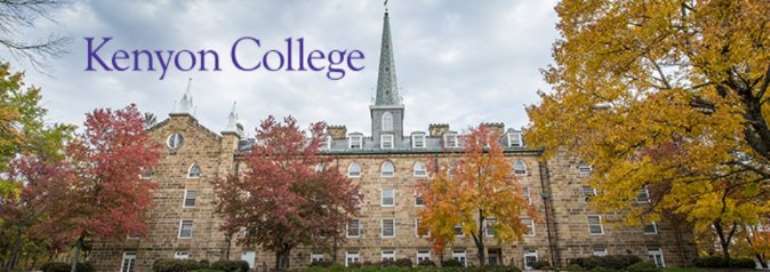The benefits of attending a private college

As a personal finance blogger, I often advise my readers to reduce the cost of college by going to a state school or by starting their education at a community college. While I certainly believe these are great ways to get an education without breaking the bank, I also feel a little hypocritical for recommending it.
You see, I went to Kenyon College, which is a small, private, liberal arts college. My bachelor's degree was pretty costly — but I wouldn't trade my education (or its cost) for the world.
That's because small private colleges really do have a lot of pluses. If you're wondering why anyone would sign up for the additional costs of a private school, here are four things you'll get there — that you might miss out on at a state school or community college.
READ ALSO:[PICTURES] There Was No Need For Kim Kardashian at Darey's Concert! None Whatsoever----Charles Novia
The benefits of attending a private college
Excellent professors (who actually teach)
Both state schools and private colleges tend to attract top-notch professors. You'll often find, however, that professors at larger schools may be more invested in their research than in teaching. That's partially because of the “publish-or-perish” mentality in academia, which can be exacerbated at a large school where a professor is trying to make her mark.
Add in the impossibility of professors really getting to know their students in 200-seat lecture halls, and the prevalence of teaching assistants — and it's clear that a student at a big state school may never form close relationships with his professors. On the other hand, private colleges tend to expect professors to have a personal connection with their students. The school helps foster this by limiting class size and having fewer courses taught by teaching assistants.
Engaged students
The small class sizes that keep professors invested in their students have another great side effect: the majority of students at private colleges tend to be completely committed to their academics. The classroom dynamic is much different when you're in a small class of actively participating students than when you're getting lost in a crowded lecture hall.
Merit aid
Small private institutions know their price tag can be out of reach for many students. For that reason, schools with healthy endowments try to provide generous financial aid packages to students. This financial aid is often dependent on the student maintaining certain grades, which provides the same sort of incentive to do well that having to pay your way through school does — but it doesn't split the student's focus between a job and studying.
Furthermore, many of the top schools in the country are need-blind (meaning they don't consider finances when deciding admission) and meet full-demonstrated need for any admitted student.
The alumni network
Alumni of small private colleges tend to be incredibly loyal to their school, which means they're happy to offer advice, connections, and networking opportunities to recent graduates. With a tight network of alumni available, graduating students may find that professional doors are opened to them in ways they may not have experienced by going to a larger school.
There are many facets to the question of where to go to college. Reducing the equation to a simple question of what is cheapest might mean you miss out on the best option for your education and career.
